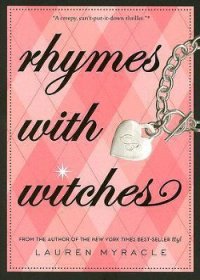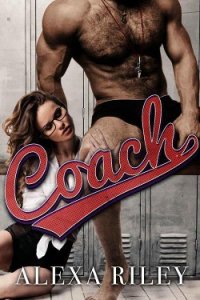The Silver Chair - Lewis Clive Staples (книги серия книги читать бесплатно полностью .TXT) 📗
“I wonder am I small enough to get through where Jill did?” said Eustace.
What had really happened to Jill was this. As soon as she got her head out of the hole she found that she was looking down as if from an upstairs window, not up as if through a trap-door. She had been so long in the dark that her eyes couldn't at first take in what they were seeing: except that she was not looking at the daylit, sunny world which she so wanted to see. The air seemed to be deadly cold, and the light was pale and blue. There was also a good deal of noise going on and a lot of white objects flying about in the air. It was at that moment that she had shouted down to Puddleglum to let her stand up on his shoulders.
When she had done this, she could see and hear a good deal better. The noises she had been hearing turned out to be of two kinds: the rhythmical thump of several feet, and the music of four fiddles, three flutes, and a drum. She also got her own position clear. She was looking out of a hole in a steep bank which sloped down and reached the level about fourteen feet below her. Everything was very white. A lot of people were moving about. Then she gasped! The people were trim little Fauns, and Dryads with leafcrowned hair floating behind them. For a second they looked as if they were moving anyhow; then she saw that they were really doing a dance—a dance with so many complicated steps and figures that it took you some time to understand it. Then it came over her like a thunderclap that the pale, blue light was really moonlight, and the white stuff on the ground was really snow. And of course! There were the stars staring in a black frosty sky overhead. And the tall black things behind the dancers were trees. They had not only got out into the upper world at last, but had come out in the heart of Narnia. Jill felt she could have fainted with delight; and the music—the wild music, intensely sweet and yet just the least bit eerie too, and full of good magic as the Witch's thrumming had been full of bad magic—made her feel it all the more.
All this takes a long time to tell, but of course it took a very short time to see. Jill turned almost at once to shout down to the others, “I say! It's all right. We're out, and we're home.” But the reason she never got further than “I say” was this. Circling round and round the dancers was a ring of Dwarfs, all dressed in their finest clothes; mostly scarlet with fur-lined hoods and golden tassels and big furry top-boots. As they circled round they were all diligently throwing snowballs. (Those were the white things that Jill had seen flying through the air.) They weren't throwing them at the dancers as silly boys might have been doing in England. They were throwing them through the dance in such perfect time with the music and with such perfect aim that if all the dancers were in exactly the right places at exactly the right moments, no one would be hit. This is called the Great Snow Dance and it is done every year in Narnia on the first moonlit night when there is snow on the ground. Of course it is a kind of game as well as a dance, because every now and then some dancer will be the least little bit wrong and get a snowball in the face, and then everyone laughs. But a good team of dancers, Dwarfs, and musicians will keep it up for hours without a single hit. On fine nights when the cold and the drum-taps, and the hooting of the owls, and the moonlight, have got into their wild, woodland blood and made it even wilder, they will dance till daybreak. I wish you could see it for yourselves.
What had stopped Jill when she got as far as the say of “I say” was of course simply a fine big snowball that came sailing through the dance from a Dwarf on the far side and got her fair and square in the mouth. She didn't in the least mind; twenty snowballs would not have damped her spirits at that moment. But however happy you are feeling, you can't talk with your mouth full of snow. And when, after considerable spluttering, she could speak again, she quite forgot in her excitement that the others, down in the dark, behind her, still didn't know the good news. She simply leaned as far out of the hole as she could, and yelled to the dancers.
“Help! Help! We're buried in the hill. Come and dig us out.”
The Narnians, who had not even noticed the little hole in the hillside, were of course very surprised, and looked about in several wrong directions before they found out where the voice was coming from. But when they caught sight of Jill they all came running towards her, and as many as could scrambled up the bank, and a dozen or more hands were stretched up to help her. And Jill caught hold of them and thus got out of the hole and came slithering down the bank head first, and then picked herself up and said:
“Oh, do go and dig the others out. There are three others, besides the horses. And one of them is Prince Rilian.”
She was already in the middle of a crowd when she said this, for besides the dancers all sorts of people who had been watching the dance, and whom she had not seen at first, came running up. Squirrels came out of the trees in showers, and so did Owls. Hedgehogs came waddling as fast as their short legs would carry them. Bears and Badgers followed at a slower pace. A great Panther, twitching its tail in excitement, was the last to join the party.
But as soon as they understood what Jill was saying, they all became active. “Pick and shovel, boys, pick and shovel. Off for our tools!” said the Dwarfs, and dashed away into the woods at top speed. “Wake up some Moles, they're the chaps for digging. They're quite as good as Dwarfs,” said a voice. “What was that she said about Prince Rilian?” said another. “Hush!” said the Panther. “The poor child's crazed, and no wonder after being lost inside the hill. She doesn't know what she's saying.” “That's right,” said an old Bear. “Why, she said Prince Rilian was a horse!” “No, she didn't,” said a Squirrel, very pert. “Yes, she did,” said another Squirrel, even perter.
“It's quite t-t-t-true. D-d-don't be so silly,” said Jill. She spoke like that because her teeth were now chattering with the cold.
Immediately one of the Dryads flung round her a furry cloak which some Dwarf had dropped when he rushed to fetch his mining tools, and an obliging Faun trotted off among the trees to a place where Jill could see firelight in the mouth of a cave, to get her a hot drink. But before it came, all the Dwarfs reappeared with spades and pick-axes and charged at the hillside. Then Jill heard cries of “Hi! What are you doing? Put that sword down,” and “Now, young 'un: none of that,” and, “He's a vicious one, now, isn't he?” Jill hurried to the spot and didn't know whether to laugh or cry when she saw Eustace's face, very pale and dirty, projecting from the blackness of the hole, and Eustace's right hand brandishing a sword with which he made lunges at anyone who came near him.
For of course Eustace had been having a very different time from Jill during the last few minutes. He had heard Jill cry out and seen her disappear into the unknown. Like the Prince and Puddleglum, he thought that some enemies had caught her. And from down below he didn't see that the pale, blueish light was moonlight. He thought the hole would lead only into some other cave, lit by some ghostly phosphorescence and filled with goodness-knows-what evil creatures of the Underworld. So that when he had persuaded Puddleglum to give him a back, and drawn his sword, and poked out his head, he had really been doing a very brave thing. The others would have done it first if they could, but the hole was too small for them to climb through. Eustace was a little bigger, and a lot clumsier, than Jill, so that when he looked out he bumped his head against the top of the hole and brought a small avalanche of snow down on his face. And so, when he could see again, and saw dozens of figures coming at him as hard as they could run, it is not surprising that he tried to ward them off.



